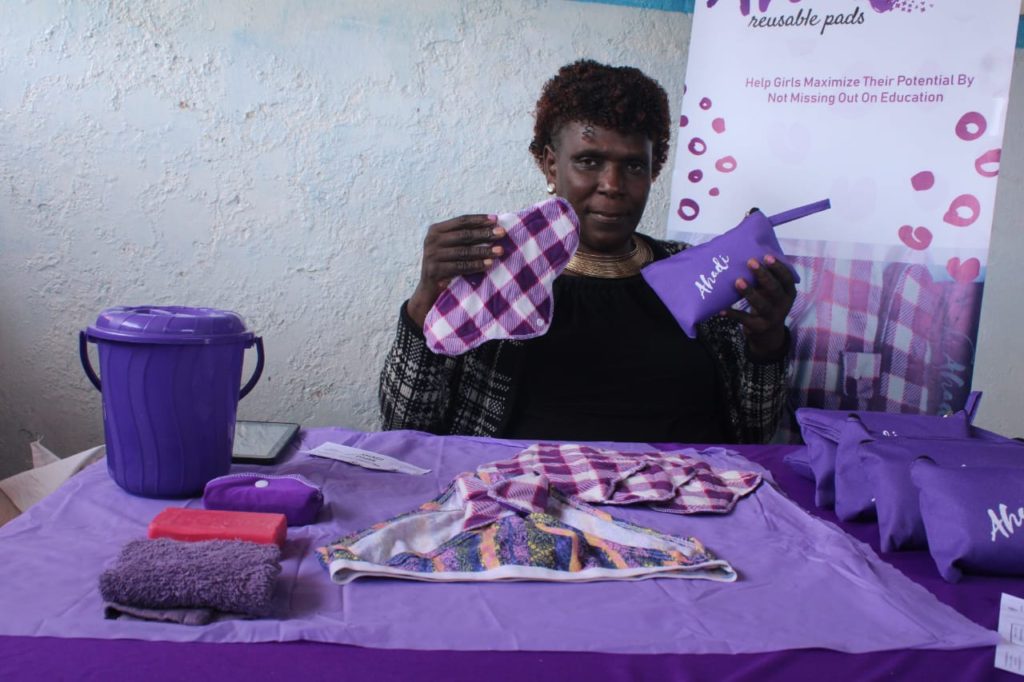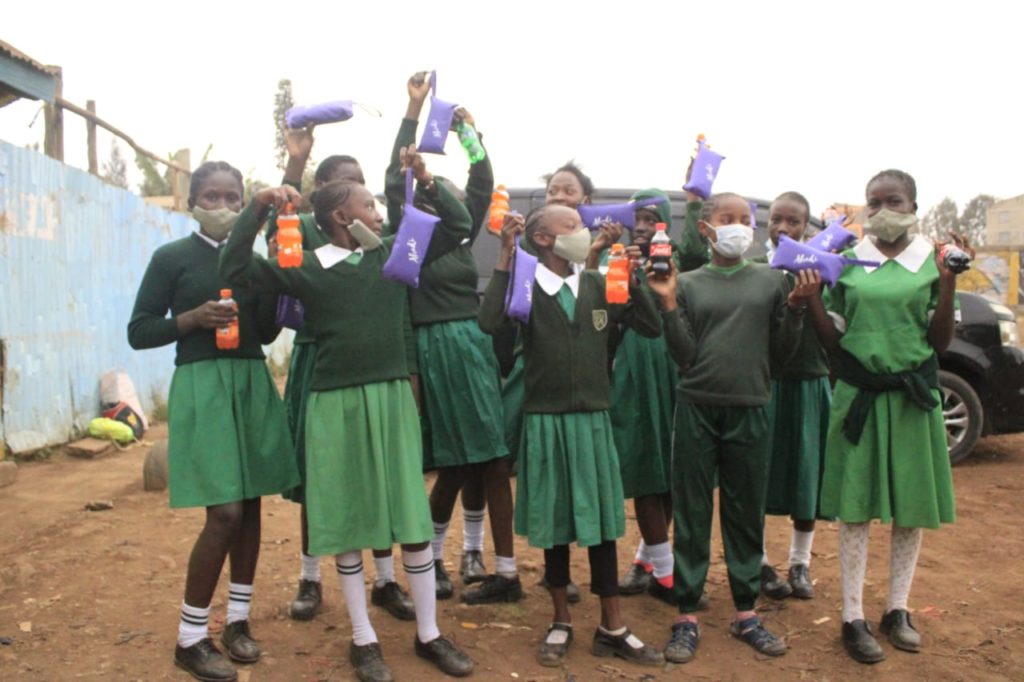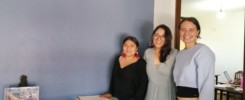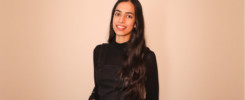Interview with Beth Otuga, Kenyan teacher and entrepreneur
By Anna Kelly
Beth has founded her own social enterprise with the ambition of supporting her family and addressing period poverty in Kenya. Ahadi Reusable Pads aims to provide affordable and hygienic pads for women and girls to use during their menstrual period.

Founder and CEO of Ahadi, Beth began her entrepreneurial journey in 2018. However, this wasn’t the beginning of her stitching career. Beth tells me, “but all through my life, I’ve been stitching. My mum had a sewing machine and I always used to sit near her and help her to stitch and draft patterns”. Beth was never taught how to stitch, “I just used to hear my mum teach some people, and when those people have gone, I go and do what they have done. And that’s how I came to know how to stitch”.
The idea to design and produce reusable pads came from both Beth’s creative background and her personal experiences of menstruating. “When I was in school my parents could not afford electricity but the Catholic Church in the village had constructed a Reading Room so we used to go in the evenings for personal studies. One day, as I studied, I did not realise that what I was using for protection was not sufficient and I did not realise that blood was dripping on the floor. When it was time to leave, I stood up to go but saw a pool of blood under my seat. I was so embarrassed but decided to just walk on. This caused me a lot of shame, I was stigmatised. It took me about three months to go back as I realised that my academic performance was deteriorating. This was because I had stopped going for personal studies and homework. Had it not been for my determination to pass my national Kenya Certificate of Secondary Education examination and proceed to a teacher’s college, I would not have gone back”. Beth was forced to use tissues and rags because she could not raise the taboo of menstruation and pads with her parents.
During menopause, Beth struggled again to find adequate and affordable menstrual pads to cope with heavy bleeding. Upon retiring as a teacher, Beth realised she needed a way in which to support her family. This is when the idea to make reusable pads was born. “So, I sat down and an idea came that I can do reusable pads. In the process of time, I met an organisation called Somo Africa. It is a business incubator which supports ideas that meet a social need”. After the twelve-week training course, Beth was able to come up with a business plan.
She experimented with materials, conducted market research and developed her product. With the funding from Somo Africa, Beth was able to increase her capital and buy more sewing machines.
Beth currently employs three women full time and more employees when she has a large order for pads. She kindly showed me around her home and the workshop in her garden where the women work.
Beyond the personal experiences and circumstances that led to her creating Ahadi, Beth is also driven to provide young women and girls with the means to stay in school. On a recent outreach visit to Baringo County in the Western part of Kenya, Beth discussed the issue of period poverty with a local leader, “the chief came out and said that here girls just stay at home during menstruation. When the girls are on their periods, they say they say they are sick. When they are sent to the hospital, they say they have a headache. When they are given medicine for headache, they still go and hide in their homes. Because they don’t have a headache. They are hiding from going to school because they don’t want to mess up when they don’t have sufficient menstrual protection”.
According to a report by the Ministry of Education and Care International on keeping girls in school, 2.7 million girls in primary and secondary school cannot afford pads and 1 in 10 girls miss school and may drop out due to periods because they cannot afford pads.
Ahadi partners with other organisations that buy the reusable pads which allows Beth to distribute them to girls who she has identified as in need of free menstrual products. Through these community outreach programmes, Ahadi also conducts Menstrual Health Management (MHM) courses and reproductive health training. Furthermore, they provide lessons about self-defence and counselling programmes for girls who have had teen pregnancies. “Teen pregnancies hit an all-time high during the Covid pandemic and the year when all schools were closed”, Beth tells me.

“So, it is my pride. Ahadi aims to help people obtain employment and raise up their quality of life. Elevating the standard of a woman will enable her to compete with her male counterpart. To achieve these objectives, girls must be able to complete their schooling. All women should and must get the chance to stay in school”.
When I asked Beth who she is inspired by, she told me about someone who taught her to be self-driven and hard working, “my mum more or less kept our family going. My dad was in and out of work. My mum worked hard and so she instilled that in us. She really inspired us to work hard find ways to overcome difficult situations”.
I think that really summarises Beth’s amazing determination to both support her family and to aid those in need.
Beth was exposed in multiple ways to the widespread issue of period poverty and found a way to both feed her family and to encourage girls to continue with their education. Through her work, Beth has already touched the lives of many girls, and she will continue to end the stigma surrounding menstruation.
The name “Ahadi” means promise in Swahili. It is our promise that girls and women will fulfill their destinies by maximising their potential through education.
Beth’s dream is to build a Reading Room, just like the one in which she used to study, “because if this happens, then I will have girls coming in to read. I will mentor them in soft skills like stitching. We can have a small library and they can come and read newspapers and books. I am looking forward to having at least ten girls at a time, coming to read in the evening or on weekends. This thing will be good for them because they will stay away from idleness and focus on their education”.
With the distribution of reusable pads, Beth is preventing young girls from experiencing the shame that she once felt so strongly, and she is encouraging them to continue learning and pursue incredible careers like her own.
If you would like to partner with or find out more about Ahadi, you can contact Beth on ahadipads@gmail.com.
You can support Ahadi’s outreach and pad distribution programmes by donating through PayPal to the email address ahadipads@gmail.com.
Follow Ahadi on:
Facebook – https://www.facebook.com/AhadiReusablePads/
LinkedIn – https://www.linkedin.com/company/ahadi-reusable-pads/
Instagram – https://www.instagram.com/ahadi_pads/


